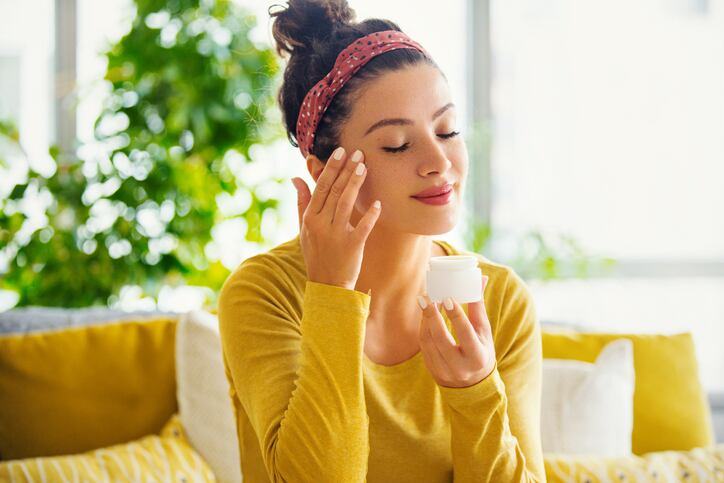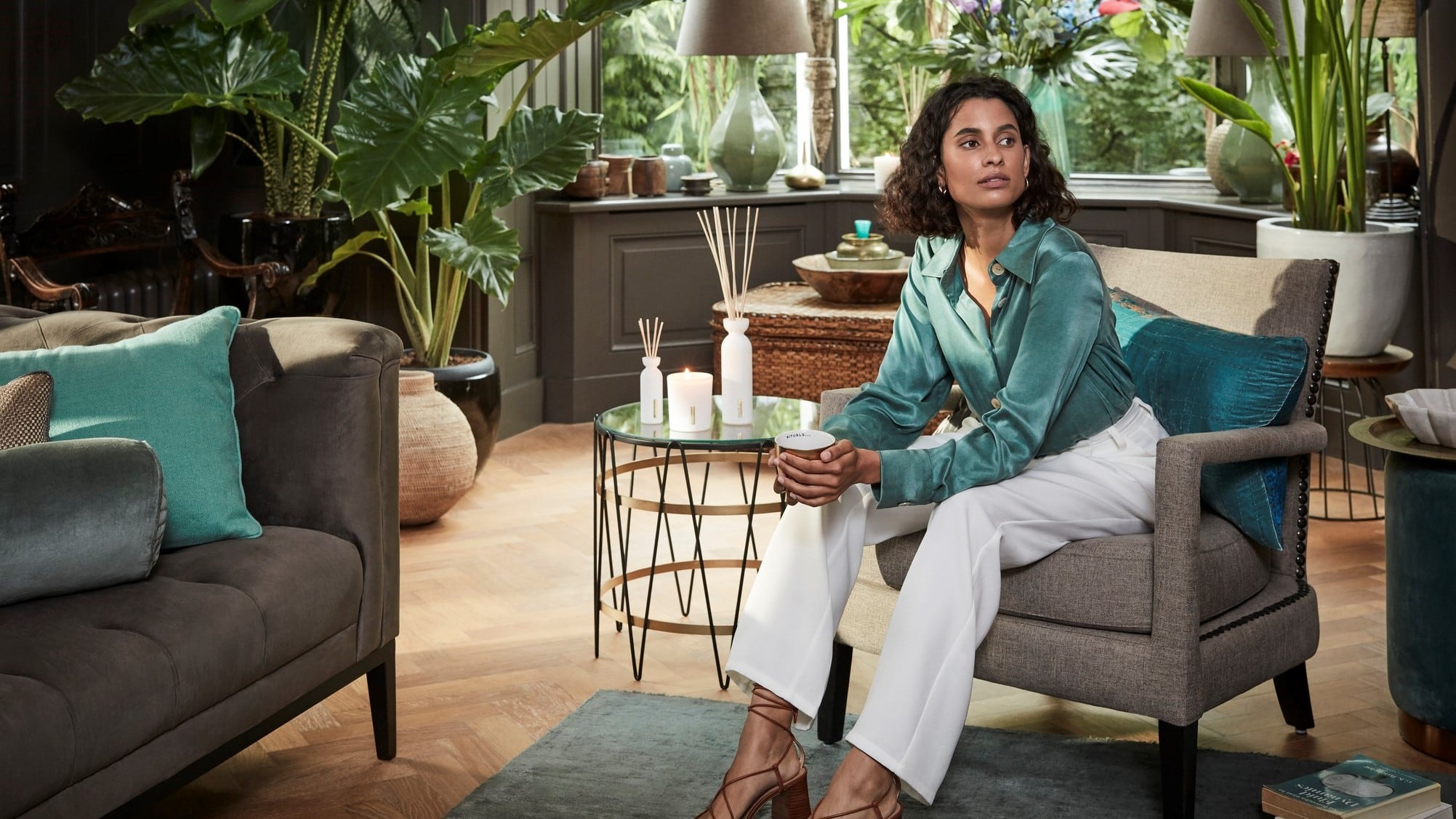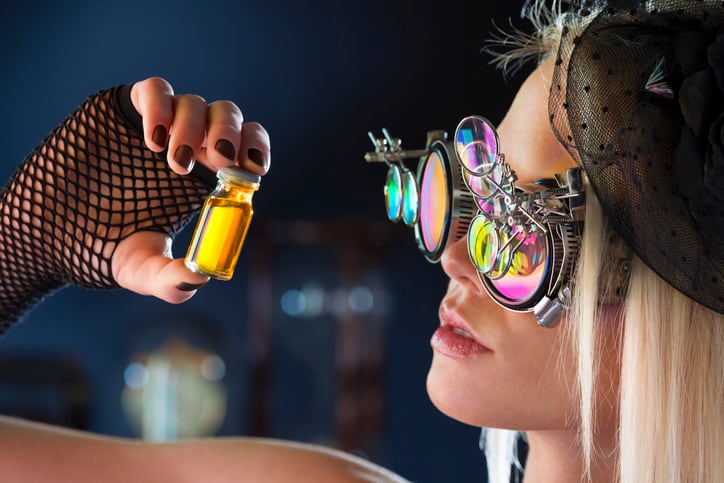Fragrance had long been central to beauty and personal care; inspiring joy and adding to the experiential side of the category. But the surging consumer interest in health and wellbeing had opened up new opportunities for fragrance innovation, according to Richard Hopping, senior brand and household analyst at Mintel.
Speaking at last week’s digital SEPAWA 2021 event, Hopping said beauty and personal care brands could start using and positioning fragrances more centrally in products as a beneficial ingredient that helped overall wellbeing and self-care.
“Consumers realise scents are very beneficial, but there is more room for brands to tap into here and really concentrate on getting through to consumers what those benefits are,” he said.
Stretching scent beyond traditional ‘relaxation’ claims
Mintel’s Global New Products Database (GNPD) indicated a gap between demand and product development, Hopping said, with the number of new products making aromatherapy claims “still relatively low”.
But he said there was scope for brands to move beyond common aromatherapy claims like ‘relaxation’ and ‘re-energising’ and focusing instead on specific claims like ‘productivity’, ‘memory’ and ‘concentration’. There was also opportunity to use fragrance to target lifestyle areas like sexual wellness and meditation, he said.
“Consumers are aware they need lots of help in their lives on an everyday basis and, as we’ve already discovered, consumers are very aware about the difference scent can make to their lives. It’s just about helping encourage consumers to see those benefits.”
According to Mintel, 46% of consumers in the US considered an appealing fragrance an important factor when buying products, making it the most influential factor for these consumers. And in Brazil, fragrance was the second most important factor with 59% of consumers stating the importance.
“That should give confidence to brands who are looking to continue that focus on scent and really putting it as a central point of our position to appeal to consumers,” Hopping said.
However, any future product development that included fragrance claims had to be backed up with sound science to avoid “wellbeing washing”, he said.
Bringing ‘luxury’ and ‘added enjoyment’ to everyday routines
Moving forward, Hopping said one area of opportunity for new product development was luxury fragrances. Traditionally reserved for prestige perfumes and premium skin care lines, he said brands could bring higher-end scents into personal and home care categories and work to make them “longer-lasting”.
It was about leveraging the “experience and expression” of luxury fragrances, he said, to “replicate that benefit fragrances and perfumes have given in the past”.
And consumer data indicated this strategy would align well with expectations, he said, with 42% of German consumers interested in long-lasting scents in bath and shower products. There had also been plenty of market innovation in this direction, he said, with Rituals moving into household care and major home care brands developing luxury toilet scents and elegant, perfumed hand soaps.
“Even in the most basic products, we’re seeing that focus on luxury fragrance and we’re expecting it to grow even further. And that’s going to give opportunities to talk about scents in new ways,” he said.
Hopping said a focus on “added enjoyment” would be key for many categories within beauty, personal and home care.
“You can more adequately push scent as a central part of that; make it into more of an experience. Consumers are looking for those everyday lifts throughout their day and scent can play a really crucial role in that.”
Environmental concerns – ‘try and demystify’ fragrances
However, future fragrance innovation in beauty, personal care and home care also had to consider rising concerns around the environment, Hopping said.
“We know consumers are becoming more concerned about the environment but that doesn’t necessarily mean they know what the right products are to buy. And there is a slight difference in priority according to the type of product being bought.”
For beauty and personal care, as with home care, he said it would be important to position fragrance centrally to the environmental story being told.
“Try and demystify that process around scents; the production methods being used; the origins of scents being used. Giving more information can make people feel better and more assured about the products they’re buying and therefore allow them to focus on the benefits they’re receiving from these products.”
So, were all these opportunities in fragrance innovation relevant to every consumer demographic? In general, fragrance remained important across all demographics, Hopping told CosmeticsDesign-Europe, though there were “some differences in the way this plays out”.
‘Have confidence that scents are going to bring success’
Products using scent to help manage mood, for example, held greater appeal amongst younger consumers aged 16-34, he said, with interest going down with age. Amongst consumers aged 55+, he said there was “greater scepticism of wellbeing claims”, so products targeting this demographic would need “more evidence”.
“…Of course, there is going to be an element of cost with many new ideas, particularly if brands go down the aromatherapy route or use complex scientific methods to back up their claims. While we know that people are willing to spend on products that benefit their health, these types of products are really going to be a greater opportunity among people with more financial freedom. But I think a lot of messaging and tailoring to lifestyles and routines doesn’t have to be exclusively for those with lots of money to spend – more simple scents can still play a role here,” Hopping said.
Overall, there remained clear and broad opportunities for fragrance innovation in beauty and personal care, he said. “Maintain the focus on scents. Scent is still crucial in that decision-making process, and in many cases, we’re seeing it’s becoming even more important. Have confidence that scents are going to bring success.”




